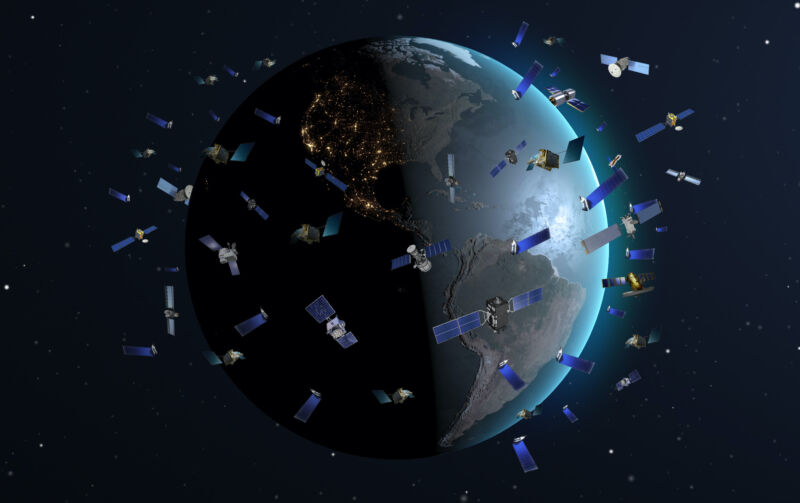NASA says Starlink Gen2 may cause problems for Hubble and asteroid detection

Enlarge / Artist's impression of low Earth-orbit satellites like those launched by SpaceX and OneWeb. (credit: NOIRLab / NSF / AURA / P. Marenfeld)
NASA has warned that SpaceX's plan for 30,000 more Starlink satellites could cause problems for science missions, human spaceflight, the Hubble telescope, and ground-based telescopes that look for asteroids that might hit the Earth.
NASA outlined its concerns in a letter to the Federal Communications Commission on Monday. "With the increase in large constellation proposals to the FCC, NASA has concerns with the potential for a significant increase in the frequency of conjunction events and possible impacts to NASA's science and human spaceflight missions," the agency said. "Consequently, NASA submits this letter for the purpose of providing a better understanding of NASA's concerns with respect to its assets on-orbit and to further mitigate the risk of collisions for the benefit of all involved."
NASA didn't urge the FCC to reject SpaceX's application, but it said it wants deployment to be "conducted prudently, in a manner that supports spaceflight safety and the long-term sustainability of the space environment." NASA also said the large number of additional satellites "will require expanded coordination and communication between the two parties to ensure the continued safety of both SpaceX and NASA assets."
Read 16 remaining paragraphs | Comments